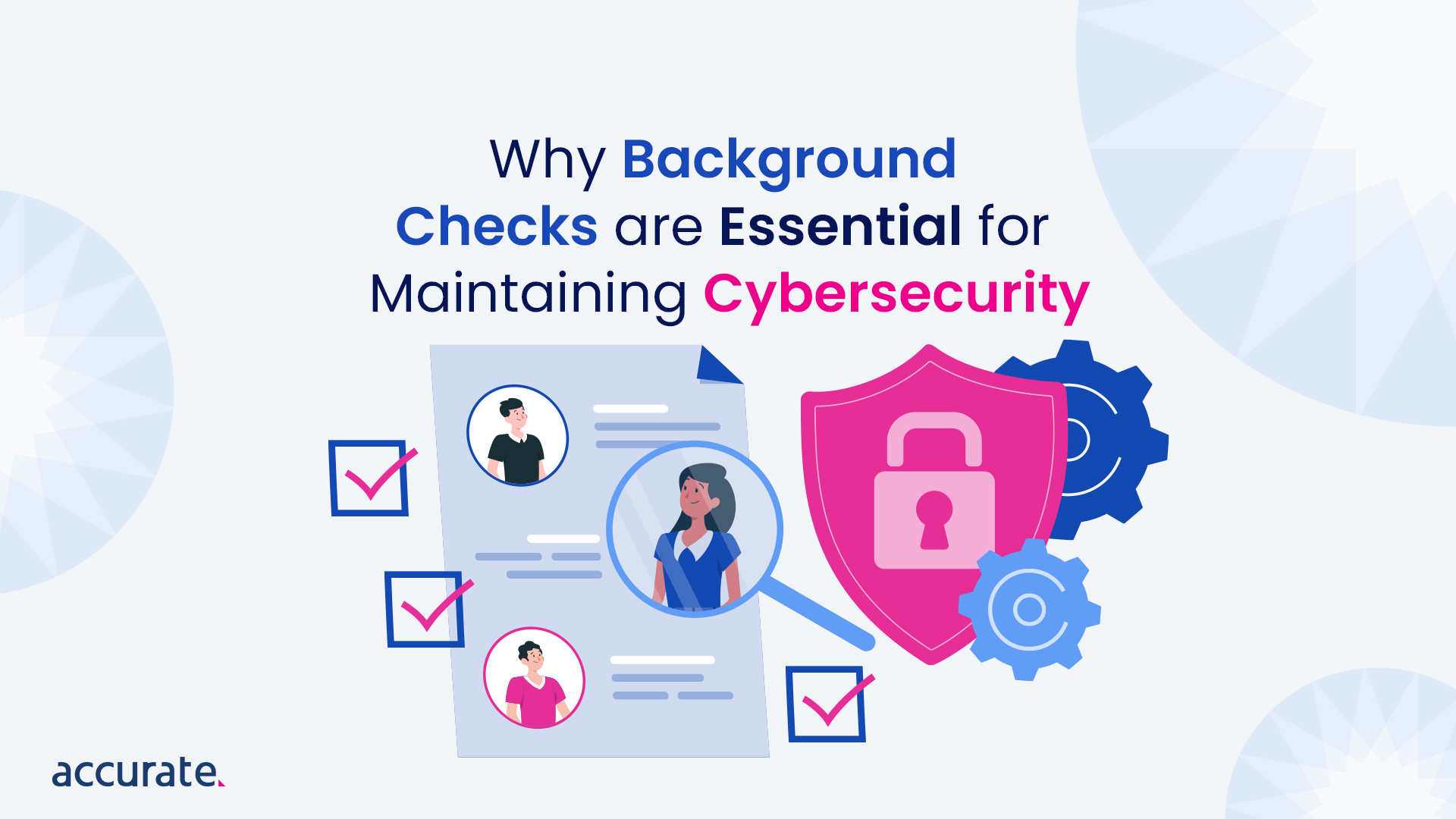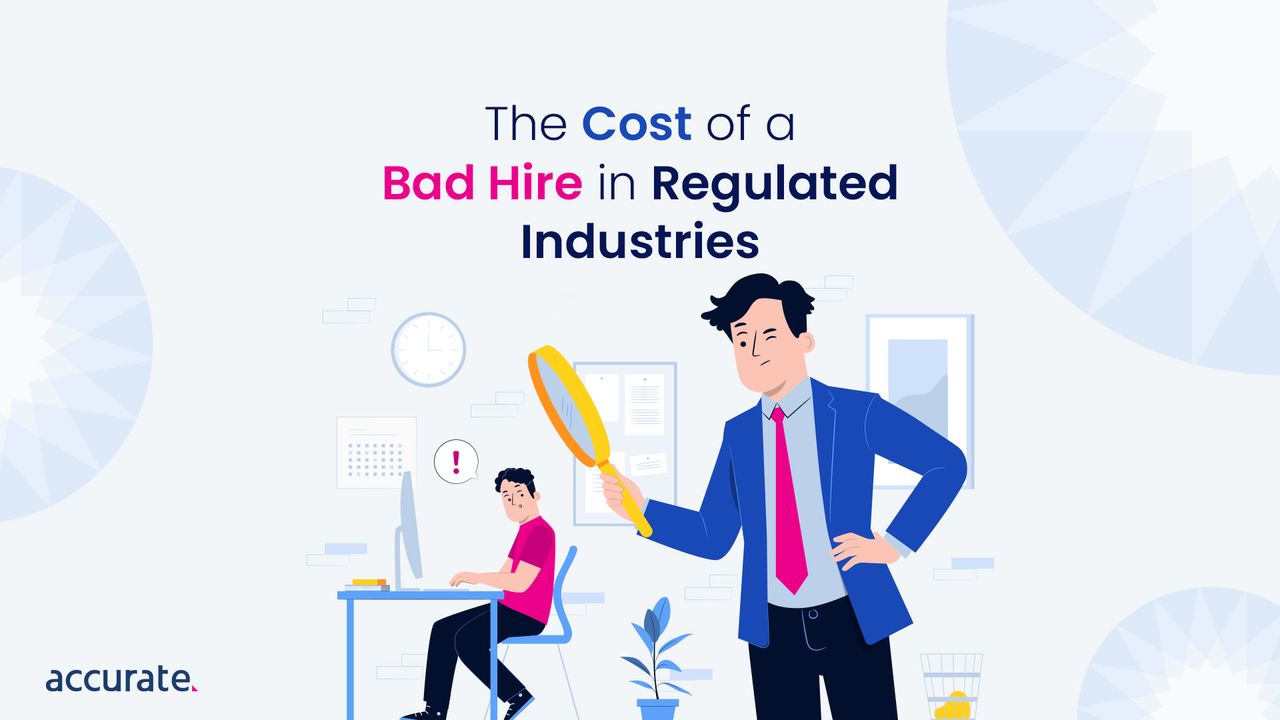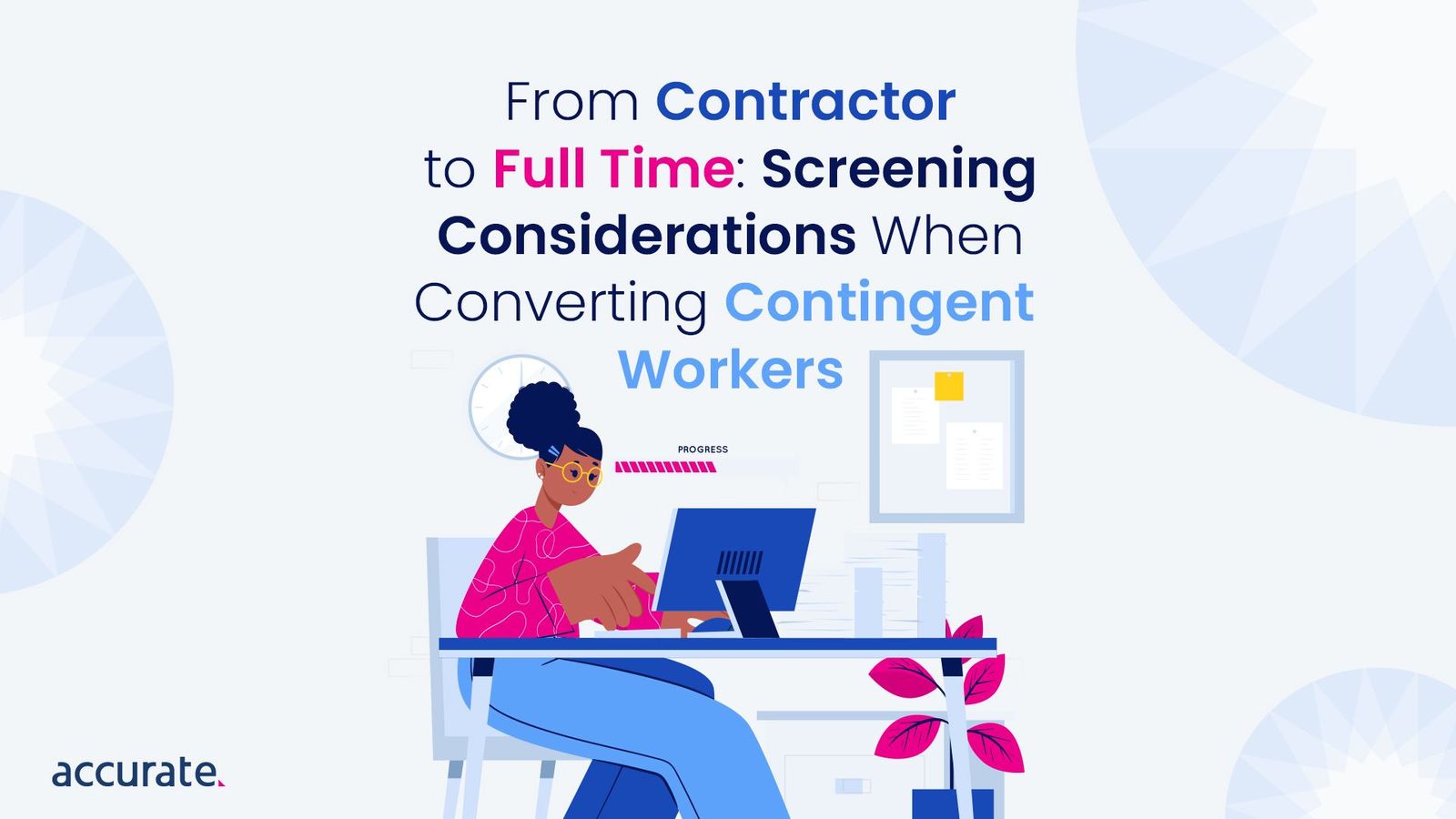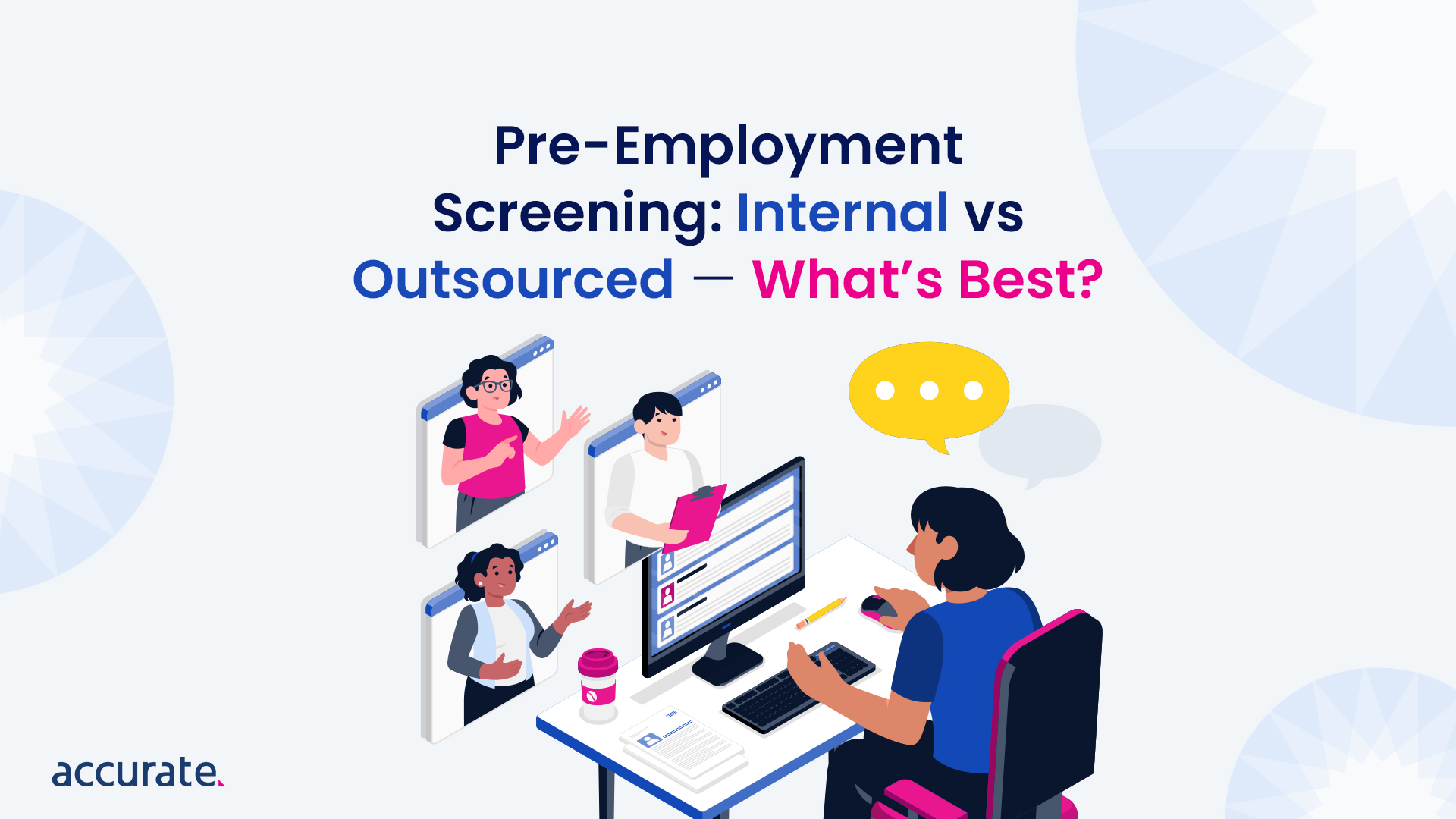When most people think about cybersecurity, they imagine technical solutions like firewalls, antivirus software, and complex passwords.
What often gets overlooked is that people inside an organisation can pose just as much of a risk as an external hacker. An employee, whether through careless actions or deliberate sabotage, can cause just as much damage as the most sophisticated cyberattack.
In Australia, cybersecurity incidents involving insiders have steadily increased, with malicious insiders accounting for a notable share of reported breaches according to the Office of the Australian Information Commissioner’s Notifiable Data Breaches Report.
With remote work and hybrid models now common, the boundaries between internal and external threats have blurred even further.
Hiring the right people has always been critical, but in today’s environment, it is directly linked to protecting sensitive data, financial information, and company systems. Conducting background checks before giving someone access to your company’s digital assets helps uncover potential risks that might otherwise stay hidden.
The Overlooked Link Between Background Checks and Cybersecurity
Cybersecurity is often treated as a technical challenge when, at its core, it is very much a human one. A large number of security incidents stem not from system vulnerabilities, but from people making mistakes or acting with malicious intent. Even with the most sophisticated technology, a single careless or dishonest employee can cause irreversible damage.
Human error continues to feature heavily in the causes of data breaches, with organisations across sectors grappling with the reality that trusted individuals inside the business often have the most direct routes to sensitive information.
Background checks act as a gatekeeper, providing an opportunity to assess whether a candidate poses a higher-than-normal risk before employment begins. They are one of the few points in the security chain where businesses have the ability to be proactive rather than reactive.
One of the more well-known examples of insider risk involved a former employee at a large Australian health provider who exfiltrated the personal data of around 20,000 individuals to sell it on the dark web.
This breach, which was not caused by external hackers but by someone already trusted within the organisation, cost the company millions of dollars in regulatory fines, legal fees, and reputational damage.
While not every insider incident can be predicted, background checks provide a strong first line of defence. They offer a structured way to look for past behaviours that might increase the likelihood of risky decisions, such as a history of fraud, hacking offences, or mishandling of confidential information.
They also reinforce the broader cultural message that security is everyone’s responsibility, starting from the hiring stage.
Cybersecurity Risks Beyond the IT Department
It is easy to assume that only technical roles, like system administrators and cybersecurity analysts, need to be screened carefully for security risks. However, in practice, cybersecurity risks extend far beyond the IT department.
Every employee who handles data, financial information, client accounts, or internal systems has the potential to introduce vulnerabilities, whether intentionally or not. Here is how different roles across an organisation present unique cybersecurity risks:
- IT and System Administrators
These employees have privileged access to the organisation’s most critical systems. They can install, modify, or delete sensitive data, meaning that a malicious or disgruntled admin could cause enormous harm. Background checks for these roles should be thorough, verifying criminal history, previous employment conduct, and technical certifications. - Developers and Engineers
Software developers and engineers build the tools and platforms that a business relies on. A poorly vetted developer could introduce hidden vulnerabilities or, worse, embed malicious code. Screening their employment history, verifying credentials, and checking references is essential to ensure the integrity of the systems they will be building and maintaining. - Finance and Accounting Staff
Access to financial systems means access to the company’s money. Staff in these departments are frequent targets for phishing scams and business email compromise attacks. They also have the potential to commit internal fraud, underlining the need to vet financial employees carefully with credit checks, criminal record checks, and references. - Human Resources and Payroll
HR teams manage employee records, salary information, and other personal data that can be valuable to cybercriminals. An HR staff member who mishandles or leaks personal data can create regulatory issues under the Australian Privacy Act, along with reputational damage. Background checks focusing on integrity, confidentiality handling, and past conduct are essential. - Customer Service and Sales Teams
These employees often have direct access to customer accounts and personal information. There have been cases where customer service representatives were bribed to leak customer data. Proper screening helps reduce the risk of hiring someone who might misuse access for personal gain or fall prey to social engineering. - Senior Executives and Managers
High-level employees not only have access to confidential business strategies but also serve as primary targets for cyberattacks like spear phishing. Their actions or missteps can affect the entire organisation. Ensuring that executives are subject to the same level of background scrutiny sends a strong message that no one is exempt from maintaining high standards of trust.
Every department has exposure to cybersecurity risks, even if it is not immediately obvious. Background checks help create a consistent standard of trust across the whole organisation, reducing the gaps that malicious actors could exploit.
How Background Checks Mitigate Cyber Risks
Background checks serve as a proactive safeguard against cybersecurity threats by helping organisations better understand the individuals they are trusting with sensitive access.
Each type of check plays a role in reducing different risks that could otherwise go unnoticed until it is too late.
Identity Verification is the starting point. Before anything else, employers need to be confident that the person they are hiring is who they claim to be. Identity fraud is not a far-off risk. Confirming legal name, right to work in Australia, and other identifiers prevents imposters or those using false documents from slipping through hiring processes.
Criminal History Checks uncover past convictions that could raise red flags. For cybersecurity, this might involve prior offences related to hacking, fraud, theft, or breach of trust. It is not about automatically rejecting anyone with a criminal record but about making informed decisions based on the nature and relevance of the offence to the role. With criminal records being classified as sensitive information under the Australian Privacy Act, employers must handle these checks with transparency and the candidate’s consent.
Employment and Reference Checks are another crucial piece. They can reveal patterns of misconduct, dishonesty, or negligence in past roles. A reference that hints at poor judgment or risky behaviour may provide insights that no database search could uncover. Employment verification also ensures that candidates have the experience they claim, which often correlates with their ability to follow security protocols correctly.
Education and Certification Verification help to identify résumé fraud. If a candidate claims to hold cybersecurity certifications or advanced degrees but cannot produce valid evidence, it raises concerns not only about competence but also bout their general honesty. Misrepresentations like these are more common than many think, and catching them early can prevent future operational and security risks.
Credit History Checks are often overlooked outside financial industries, but can be an important tool. Candidates under extreme financial pressure might be more vulnerable to bribery or theft. In highly sensitive roles, particularly in finance or procurement, a history of bankruptcies or serious debts can indicate additional risk factors to be aware of.
Social Media and Online Footprint Reviews are used cautiously but can offer additional insights. Publicly available content can sometimes reveal extremist views, reckless online behaviour, or disregard for legal and ethical standards. Screening online activity must always respect privacy laws, but when done properly, it adds another layer of reassurance.
The inclusion of various background checks greatly increases the chances of hiring people who will protect the company’s assets, rather than jeopardising them.
Best Practices for Implementing Background Checks with Security in Mind
For background checks to meaningfully reduce cyber risks, they need to be built into the hiring process strategically and consistently.
One of the most effective approaches is risk-based screening. Not every role carries the same level of access or potential for damage. By categorising roles based on their risk exposure, businesses can match the depth of screening to the level of trust and assess the role demands. For example:
- High-risk roles (e.g., network administrators, finance managers) should involve comprehensive criminal checks, credit history reviews, qualification verification, and employment reference checks.
- Moderate-risk roles (e.g., customer service agents with access to client data) might require criminal checks and employment verification as the core focus.
- Lower-risk roles could involve streamlined screening while still maintaining core checks like identity verification.
Mapping these tiers into an internal policy ensures that hiring managers apply checks consistently, avoiding bias or errors.
It is just as vital to ensure compliance with Australian laws. Employers must obtain written consent from candidates before collecting background information. They must also limit the information gathered to what is reasonably necessary for the job. Using a trusted screening provider can help make this process faster and more compliant, minimising the administrative burden on internal HR teams.
Documentation is another key part of a strong background screening program. Companies should have clear, written policies outlining what checks are performed for different roles, how data is handled securely, and what steps are taken when a background check returns a concerning result. Having these policies not only helps with compliance but also builds trust with candidates, showing them that checks are conducted fairly and professionally.
Vendor and contractor screening often gets overlooked, but can be a significant source of risk. Anyone who will have access to systems, even indirectly, should be vetted to an appropriate level. Contracts with third parties should clearly stipulate background screening requirements for their employees as a condition of engagement.
Finally, screening should not be thought of as a one-off event. Some organisations are introducing continuous monitoring programs, particularly for employees in highly sensitive roles. These programs can flag new criminal activity or other risk factors that might emerge after someone has been hired.
Fostering a Security-First Culture Through HR Practices
While background checks lay the groundwork for safer hiring, they are even more powerful when combined with a wider culture of security awareness within the organisation.
New hires should encounter cybersecurity expectations from the very beginning of their journey. During onboarding, it is helpful to include security training that covers topics like phishing, data handling, password management, and what to do if they suspect a breach. Setting these expectations early shows that cybersecurity is not an IT problem but a shared responsibility across the business.
Security awareness training should not be a once-a-year box-ticking exercise either. Ongoing education, such as simulated phishing exercises or short security refreshers, keeps best practices fresh in employees’ minds. Australian studies have shown that regular training can significantly reduce the success rates of phishing attacks, which remain one of the most common methods used to breach organisations.
Creating an environment where employees feel comfortable reporting mistakes or security concerns is equally important. When people fear punishment or blame, they are less likely to come forward, meaning small issues can snowball into serious incidents. Open channels of communication, positive reinforcement for reporting, and leadership modelling good security behaviour all help create a healthier security culture.
For particularly sensitive roles, it may be appropriate to implement periodic re-screening. For example, employees with privileged IT access or control over financial accounts could undergo a criminal history refresh every few years. While this is not needed for every employee, having it in place for critical roles reduces the risk of missing significant changes that occur after hire.
Key Takeaways
- Background checks are a vital part of cybersecurity defences, helping to reduce the risk of insider threats before they can materialise.
- Cybersecurity risks exist across all departments, not just IT, meaning all roles with system or data access should be assessed appropriately.
- Different types of background checks, from identity verification to criminal and credit checks, address different aspects of potential risk.
- A risk-based, compliant approach to screening ensures that the right checks are matched to the right roles, while staying fair and legally sound.
- Embedding security awareness from onboarding onwards reinforces the message that cybersecurity is everyone’s responsibility.
- HR plays a strategic role in building a resilient and secure organisation by aligning hiring practices with cybersecurity priorities.
For businesses ready to strengthen their hiring processes and better protect their operations, partnering with a trusted background screening provider can make all the difference. Accurate Australia offers fast, compliant, and reliable background checks tailored to your business needs, helping you hire with confidence and build a safer future.



